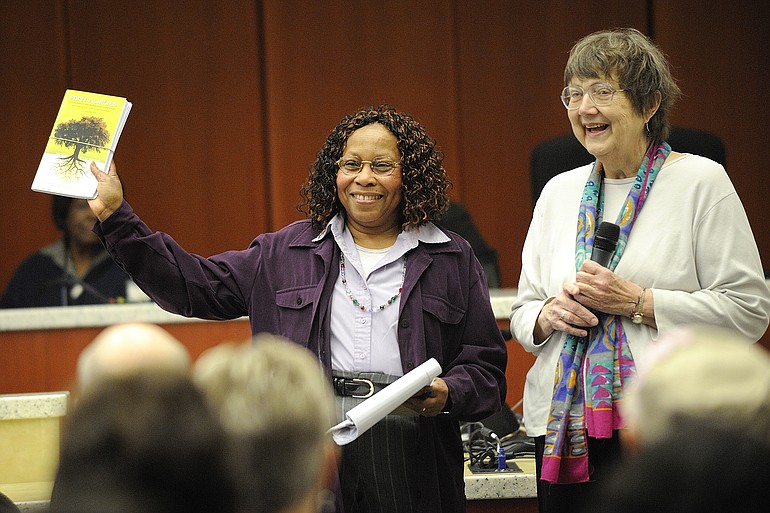Growing up in Vancouver, Jackie Webster never had another black child in her class. Maybe there would be a black student in the grade above or the grade below, but never in her class.
When her family moved to another neighborhood, residents said their property values would go down with the arrival of a black family.
“We kept that yard up,” Webster said Wednesday, adding she hated those outdoor chores, but her parents didn’t want to give neighbors any reason to complain.
At 18, Webster, a 1970 graduate of Hudson’s Bay High School, was in J.C. Penney’s — back then it was downtown — and was picked up for shoplifting. She told the officer she had money to pay for her items, but was dragged over to the police station. She was humiliated at the thought she’d be spotted by friends who would no doubt be hanging out at Burgerville or cruising the streets.



